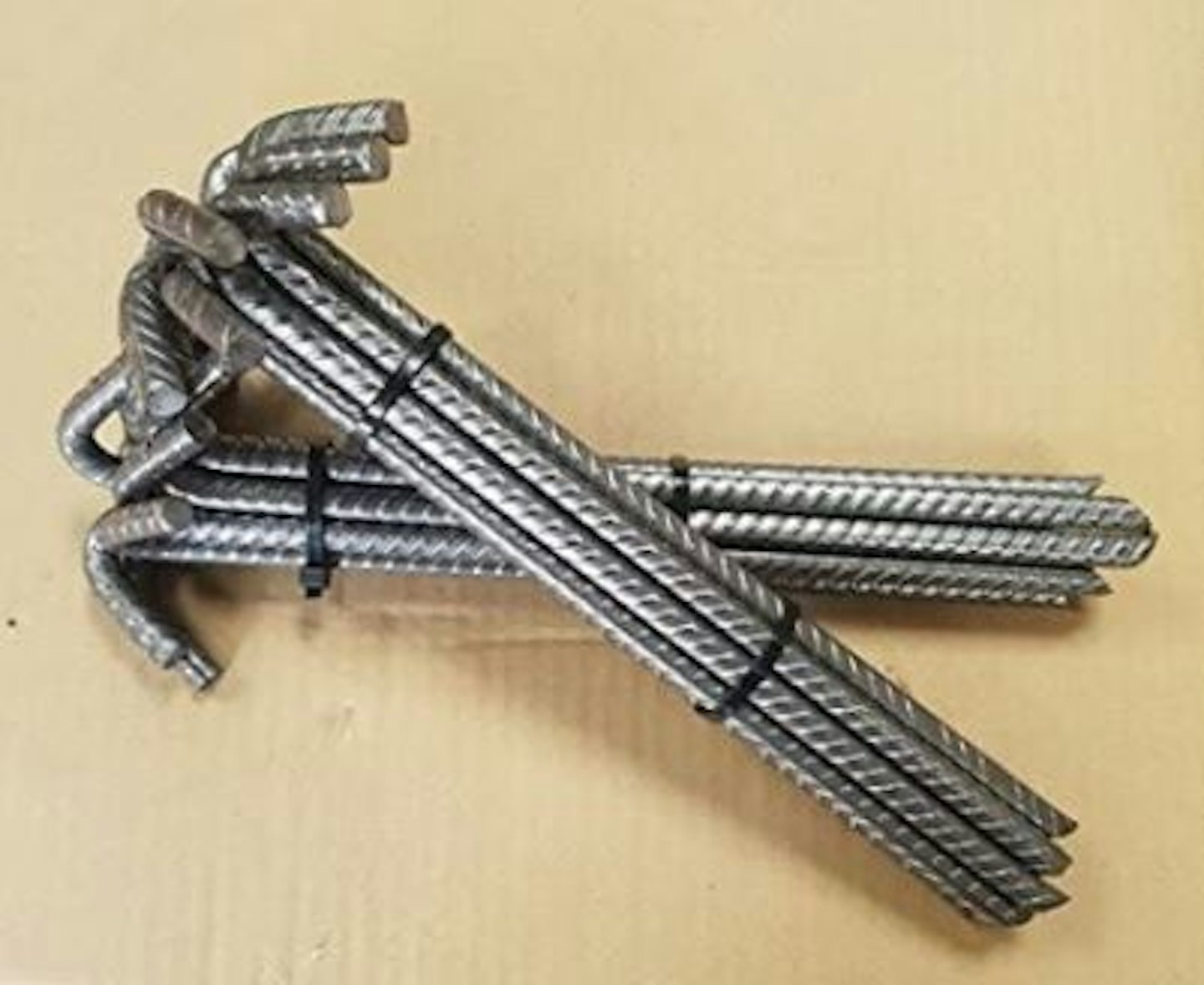Just like all of the best tents you can buy, six-person and family-sized tents are extraordinarily varied. It’s simultaneously a blessing and a curse. Yes, you get an amazing range of choices, but which of the best 6-man tents to choose?
That’s why we’ve crafted this ultimate buyer’s guide to the best 6-man tents. Here, we have a range of 6-man tents that have each received an individual award – be it value for money, clever design, or space.
In addition to naming the best 6-person tents, we have also included further information about tents such as waterproof ratings and about the different tent shapes, plus a couple of important extras you might want to consider.
The best 6-man tents at a glance:
Coleman Vail 6 – Best budget 6-man tent
Zempire Aerodrome II Pro – Best 6-man tent design
Vango Aether Air 600XL – Sustainability award
Outdoor Revolution Airedale 6.0SE - Most spacious 6-man tent
Berghaus Air 6 XL – Best price-to-space ratio
MSR Habitude 6 – Most compact 6-man tent
The best 6-man tents:
Coleman Vail 6
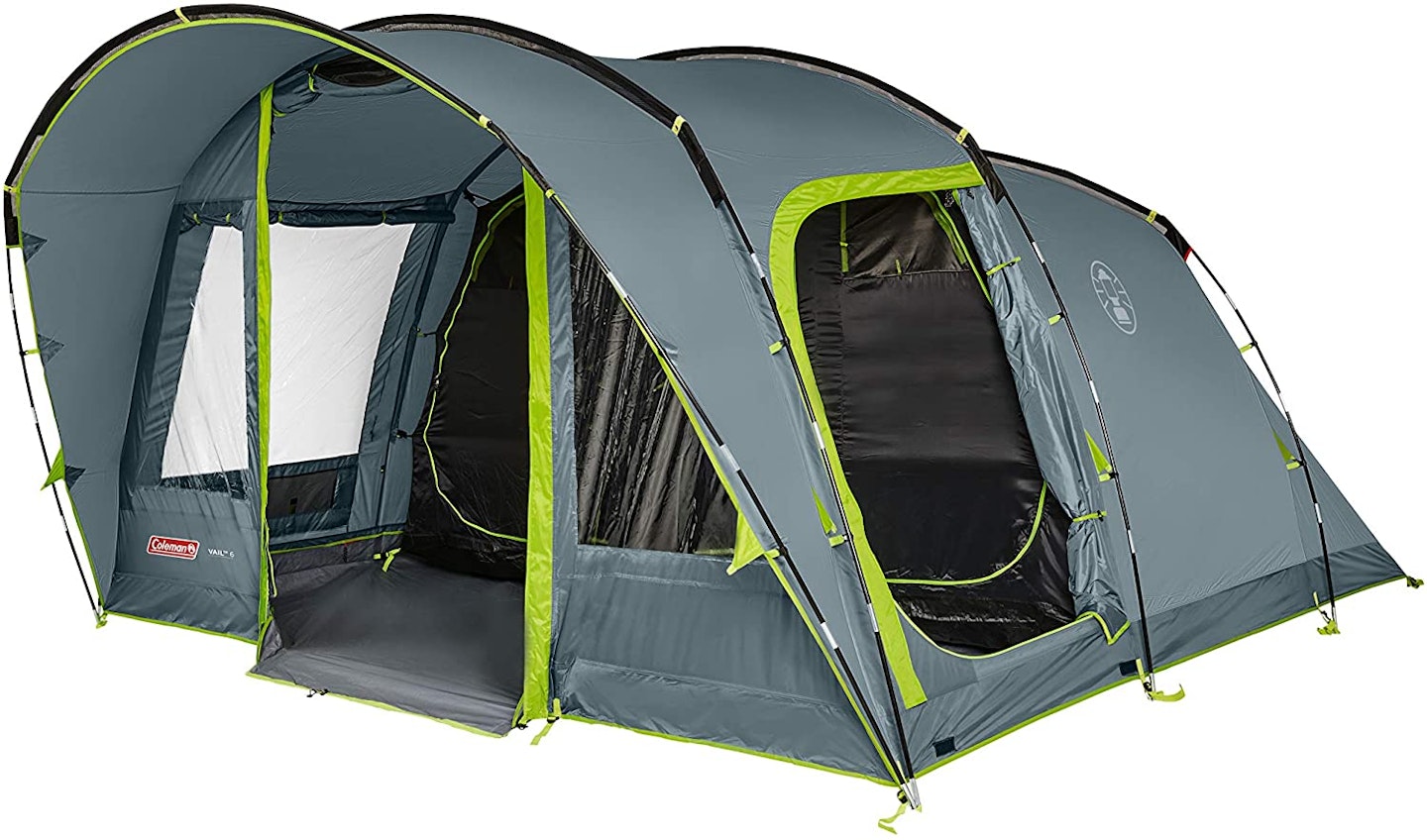
Best budget 6-man tent

Either for first-time family campers or for people who understandably want to keep the upfront costs of a larger tent down, this is one of the better-quality tents youu2019ll find. It has an excellent waterproof rating; a generous front room with two entrances; and two darkened bedrooms. Relative to the other tents here, the Vail 6 is fairly compact and lightweight, making it easy to store and transport. While it uses standard fibreglass poles rather than trendy inflatable ones seen in some of the other tents here, pitching is still simple and takes around 20 minutes.
Pros
- Value
- Doesn't skimp on important features
Cons
- Natural trade-off of compact size is reduced space
| Style: | Tunnel style tent |
| Waterproofing: | 4000mm HH polyester flysheet |
| Poles: | PowerFlex fibreglass |
| Packed size: | 63 x 35 x 31cm |
| Weight: | 18.8kg |
Zempire Aerodrome II Pro
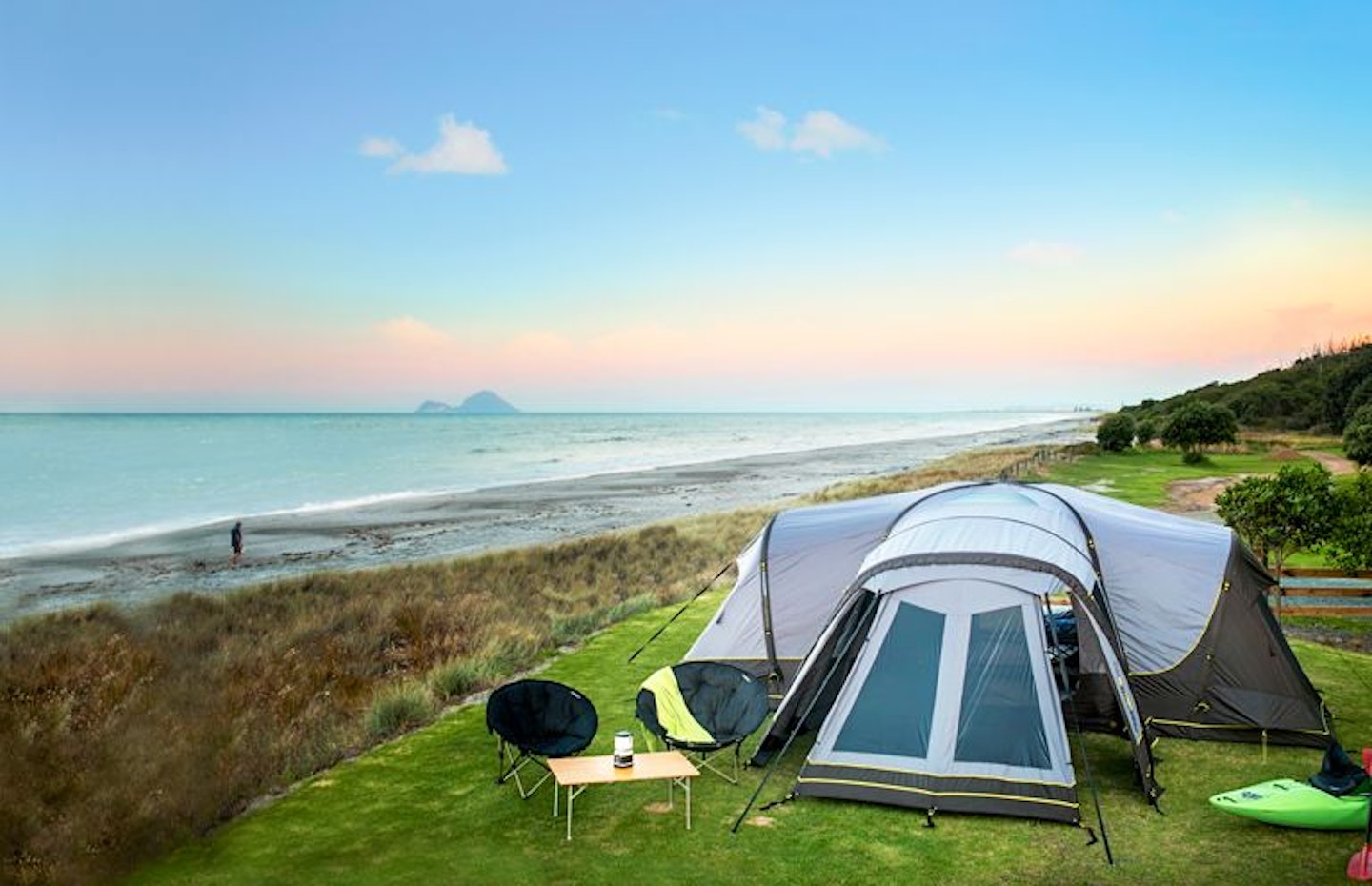
Best 6-man tent design
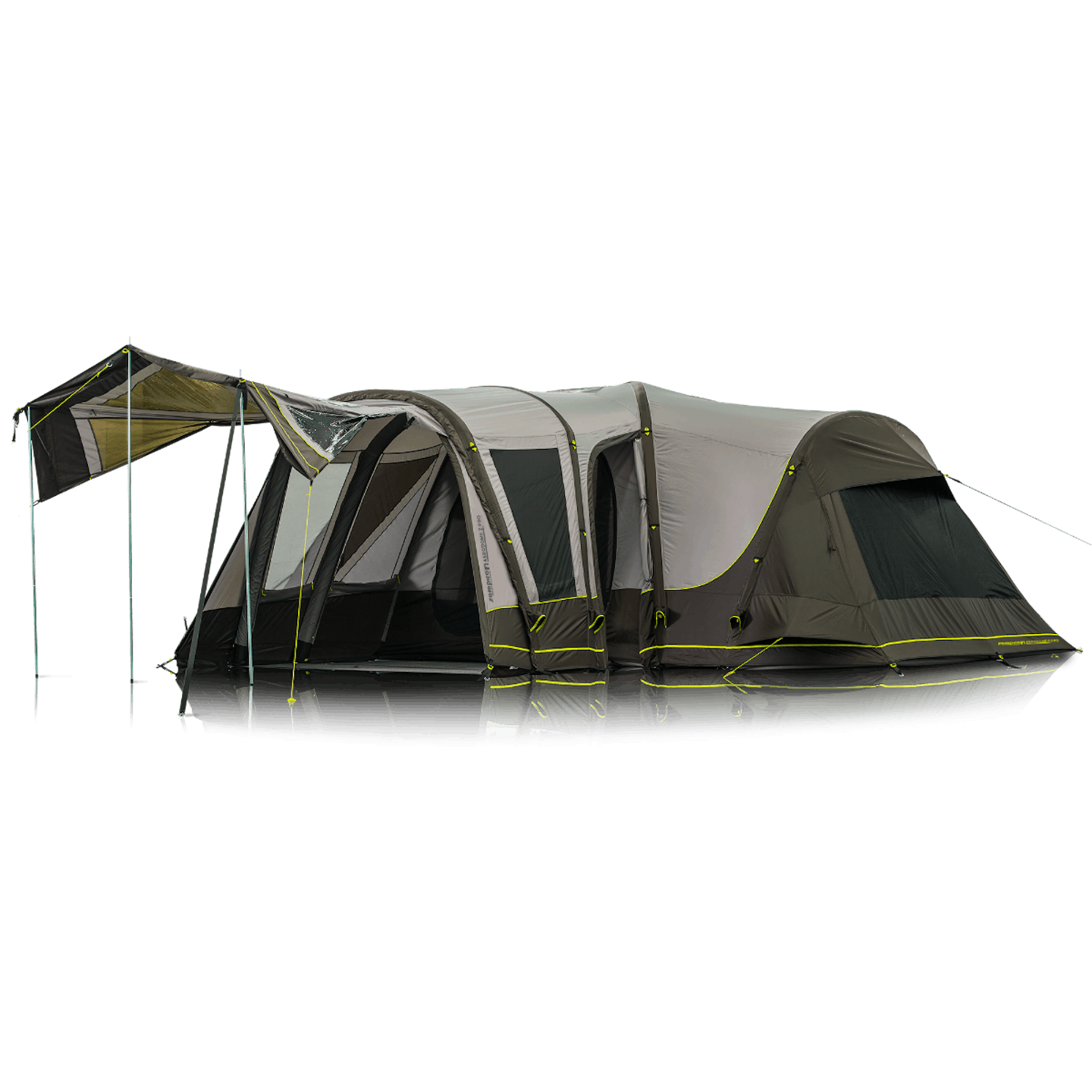
www.blacks.co.uk
This tent is all about attention to detail and quality. Designed in a 'T' shape, you get the benefit of two living areas, one a more social, public front room; the other a more private space. Flanking the rear living room (featuring skylights) are the two bedrooms - a large master bedroom and a slightly smaller bedroom with a storage cupboard. Clever touches include the bright zips that are easier to find in the dark; specific power cord access ports; removable inners for versatility; and fantastic all-weather upper and lower ventilation.
One of the best 6-man tents for sure.
Pros
- Wonderful attention to detail
- Easy and fairly quick pitching (10 to 20 minutes)
Cons
- It’s a seriously heavy beast
| Style: | T-shape inflatable tunnel tent |
| Waterproofing: | 10,000mm HH Poly Oxford fabric |
| Poles: | Inflatable |
| Outer dimensions: | 590cm (L), 670cm (W), 230cm (H) |
| Packed size: | 78 x 48 x 48cm |
| Weight: | 43.5kg |
Vango Aether Air 600XL
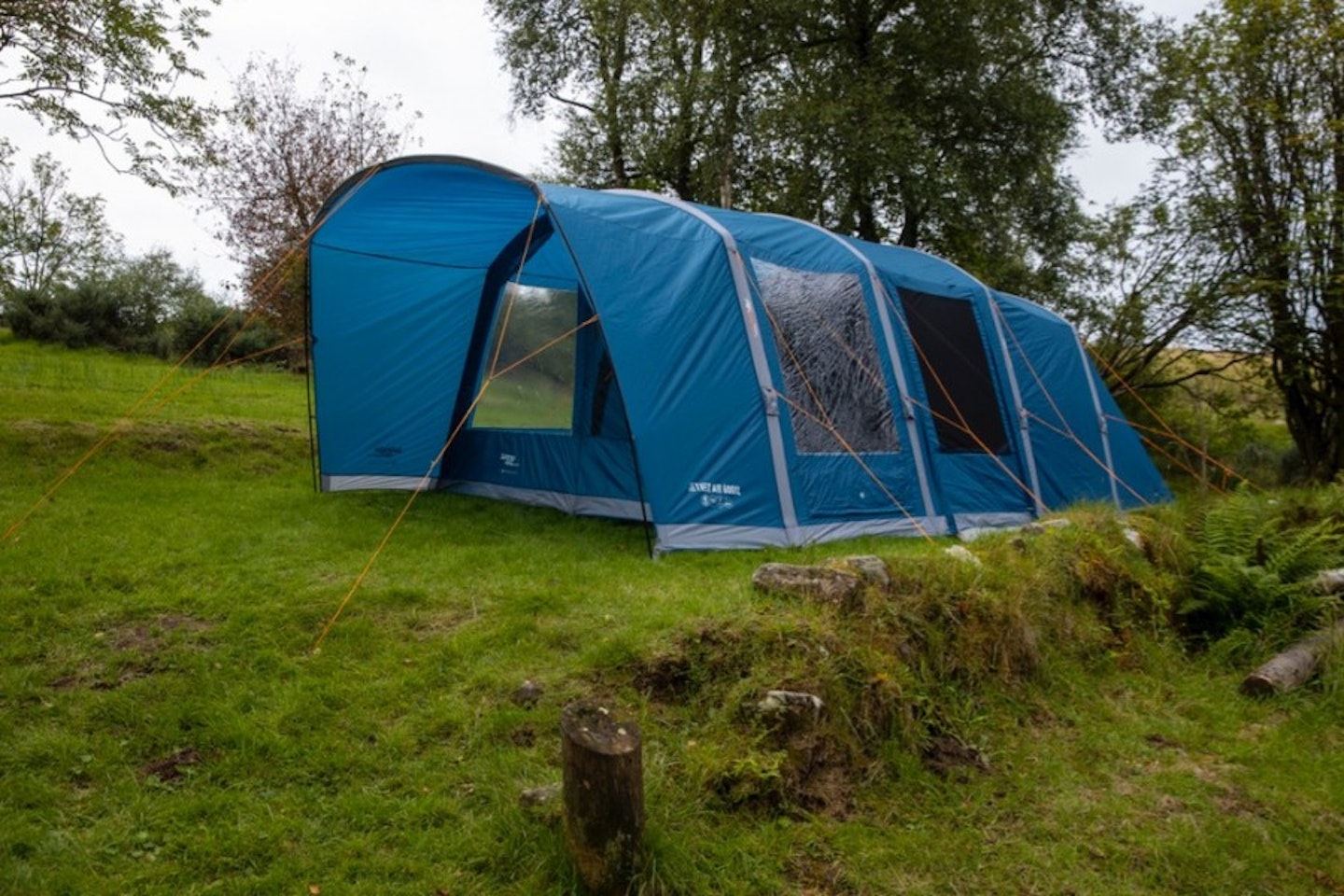
Best for sustainability
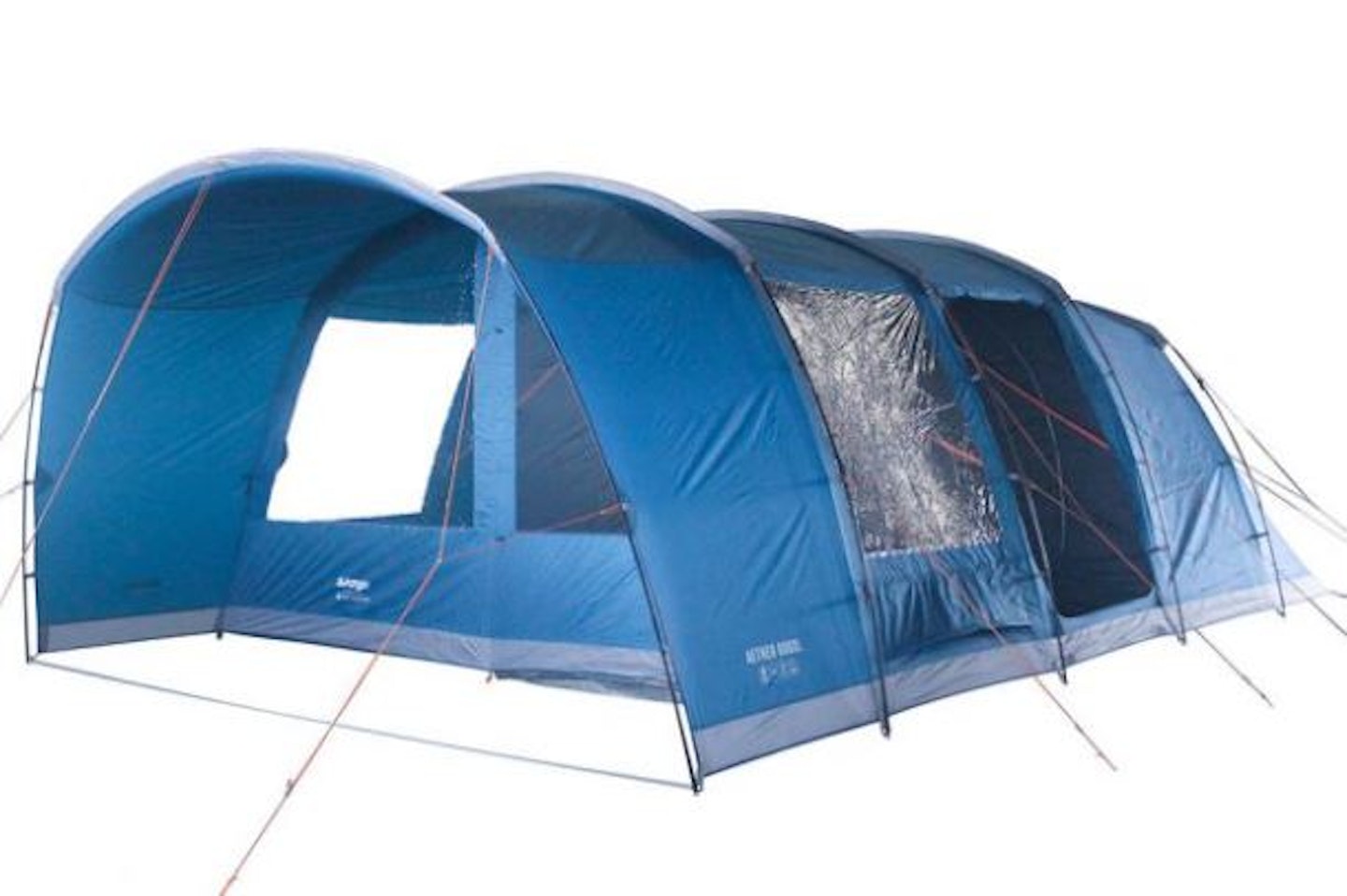
www.outdoorgear.co.uk
Part of Vango's new Earth Collection, the Aether Air 600XL is made from Sentinel Eco fabric that uses recycled single-use plastics. Some people consider a sustainable product means a downgrade in quality, but that is far from the truth. The fabric has UPF 30+ sun protection and anti-fade technology. The dividable bedrooms are darkened for better sleeping, and there are very generous living areas. Many sustainable products are more expensive than the status quo, but the Aether 600XL is fantastic value for an inflatable tent of this size. For even better value, you can opt for the Aether 600XL with regular poles.
Pros
- Sustainable manufacturing
- Good value
Cons
- Pitching time is longer than inflatable models
| Style: | Tunnel tent |
| Waterproofing: | 3000mm HH recycled polyester |
| Poles: | Inflatable |
| Outer dimensions: | 595cm (L), 380cm (W), 210cm (H) |
| Packed size: | 72 x 33 x 33cm |
| Weight: | 21.6kg |
Outdoor Revolution Airedale 6.0SE
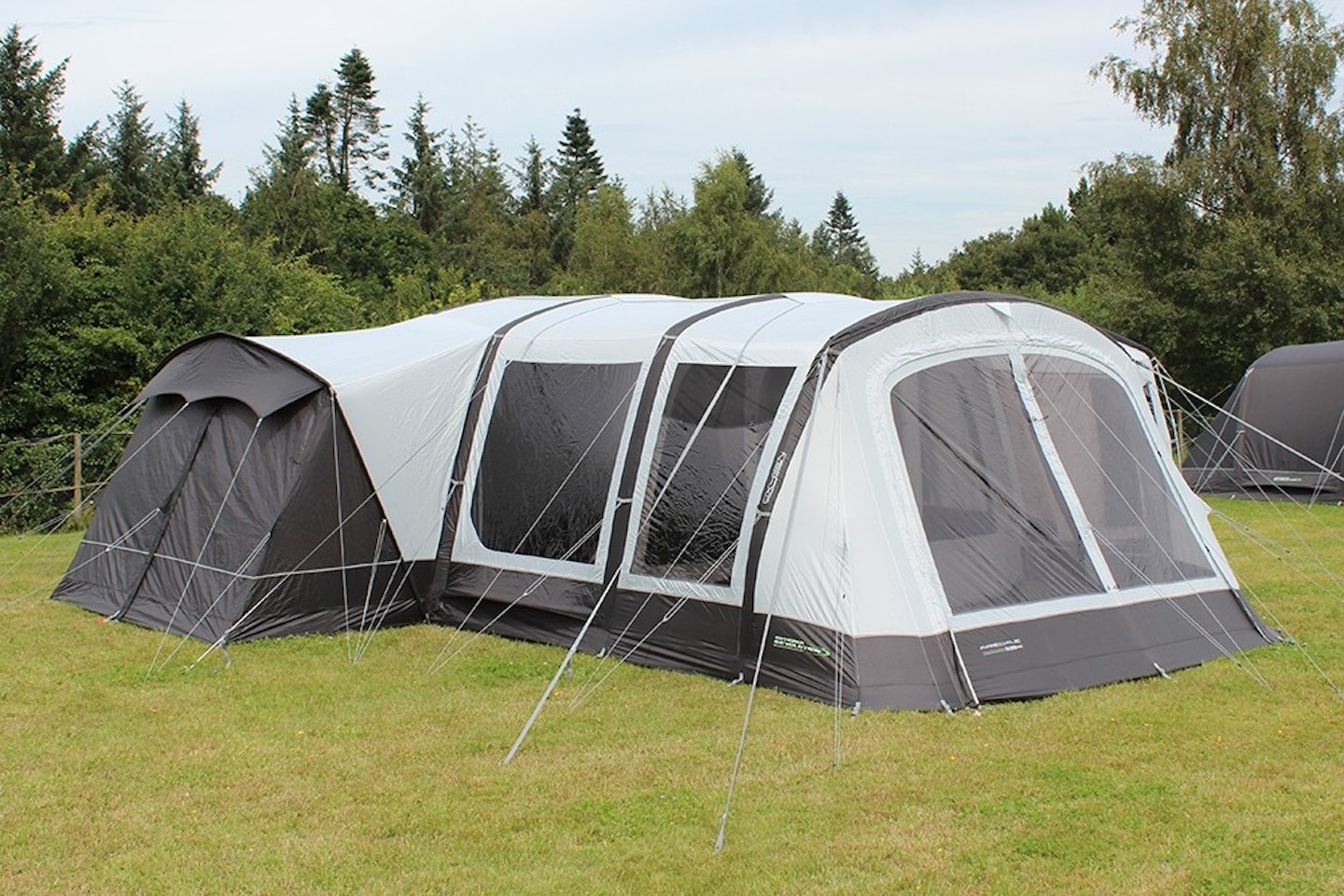
Best spacious 6-man tent
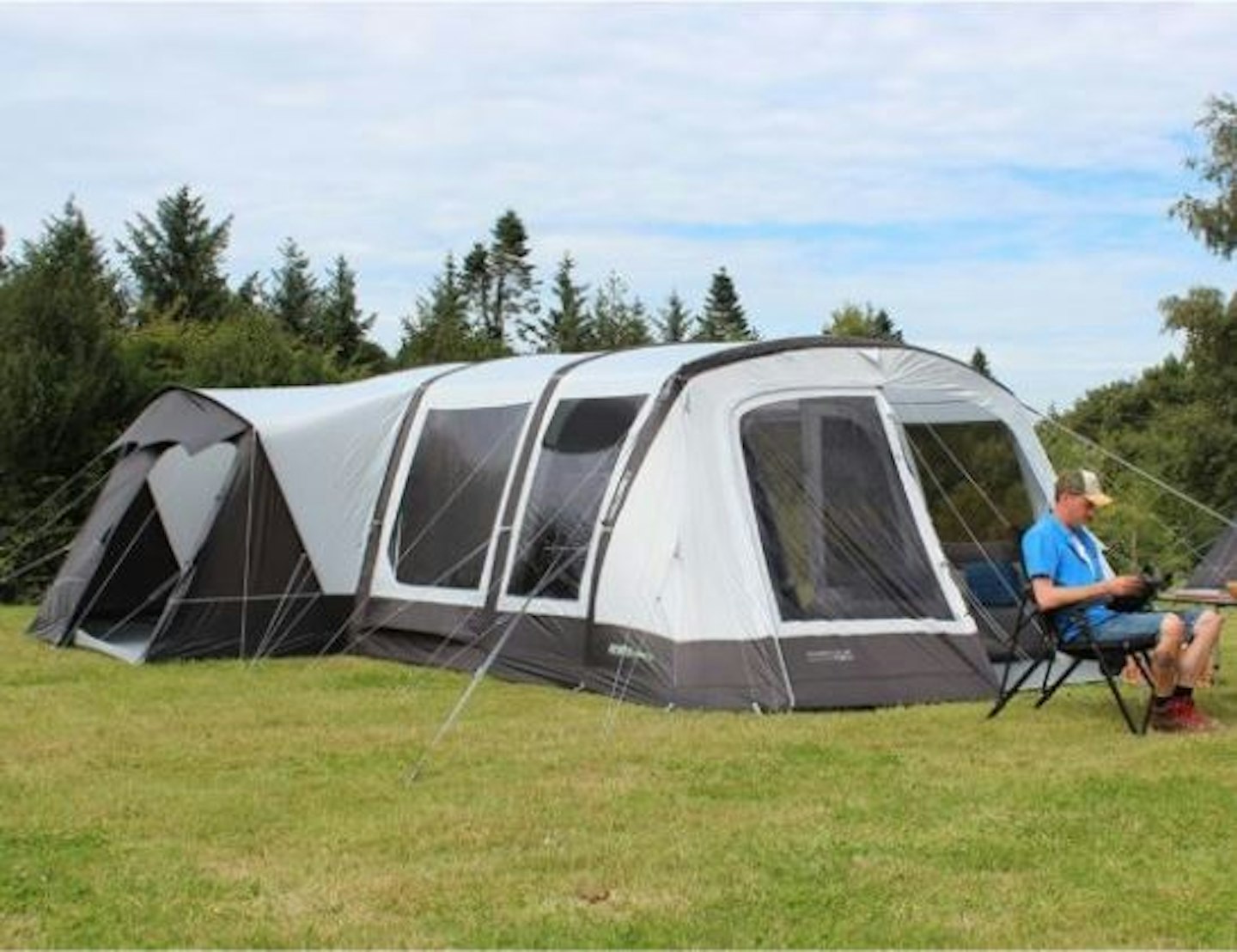
www.winfieldsoutdoors.co.uk
The cavernous nature of this tent is not its only drawcard. It also bears many clever features. The three divided bedrooms at the rear are deep (230cm), so you don't suffer the feeling of claustrophobia. The removable side room for extra storage space or an extra bedroom makes a massive difference to this tent's spaciousness. This tent is compatible with Outdoor Revolution's Lumi-Link lighting system, which are attachable LED lighting strips that can be powered by USB, 12V, or mains and controlled by a remote.
Pros
- Relatively quick pitching (10 to 20 minutes)
- Great for glamping
- Many available extras
Cons
- Enormously heavy
| Style: | Inflatable tunnel tent |
| Waterproofing: | 4000mm HH fabric |
| Poles: | Inflatable |
| Outer dimensions: | 725cm (L), 380cm (W), 215cm (H) |
| Packed size: | 88 x 62 x 52cm |
| Weight: | 41.97kg |
Berghaus Air 6 XL
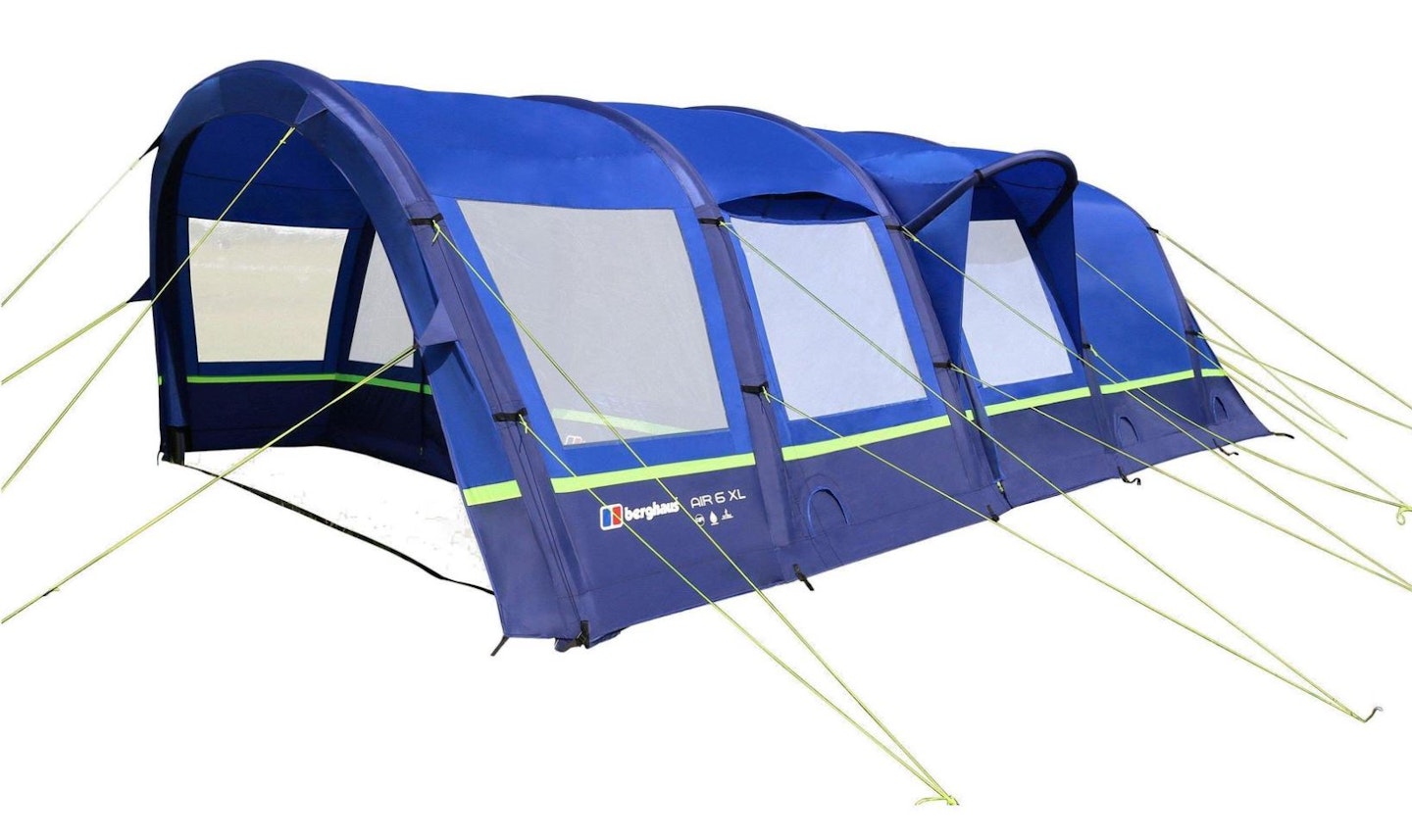
Best space-to-price ratio
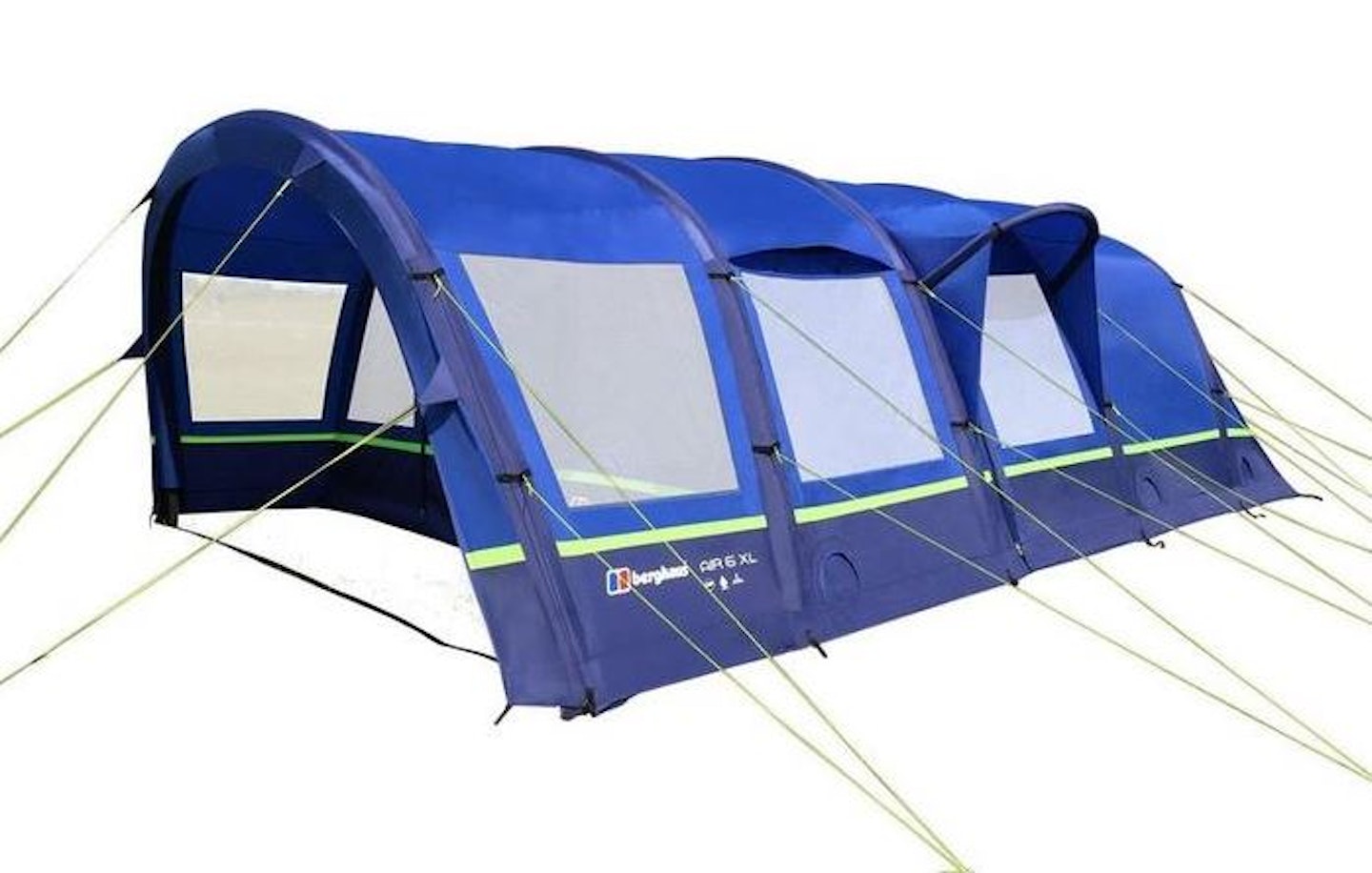
www.gooutdoors.co.uk
Though it's a good two-metre shorter than the Outdoor Revolution tent above, six-metre is hardly minuscule. For those after a generous family tent without breaking into the four-figure price bracket, this is your best option. It's not just length you get here; crucially, the Air 6 XL is even wider than the Outdoor Revolution tent, and this pays dividends both in the three bedrooms and living space. Wider bedrooms are more comfortable, squarer living spaces are more social.
Pros
- Very useable space
- Much lighter than the Zempire and Outdoor Revolution tents
Cons
- The inevitable slight blue interior tinge might bother some people
| Style: | Inflatable tunnel tent |
| Waterproofing: | 6000mm HH flysheet |
| Poles: | Inflatable |
| Outer dimensions: | 605cm (L), 45cm (W), 220cm (H) |
| Packed size: | 87 x 58 x 50cm |
| Weight: | 36.7kg |
MSR Habitude 6
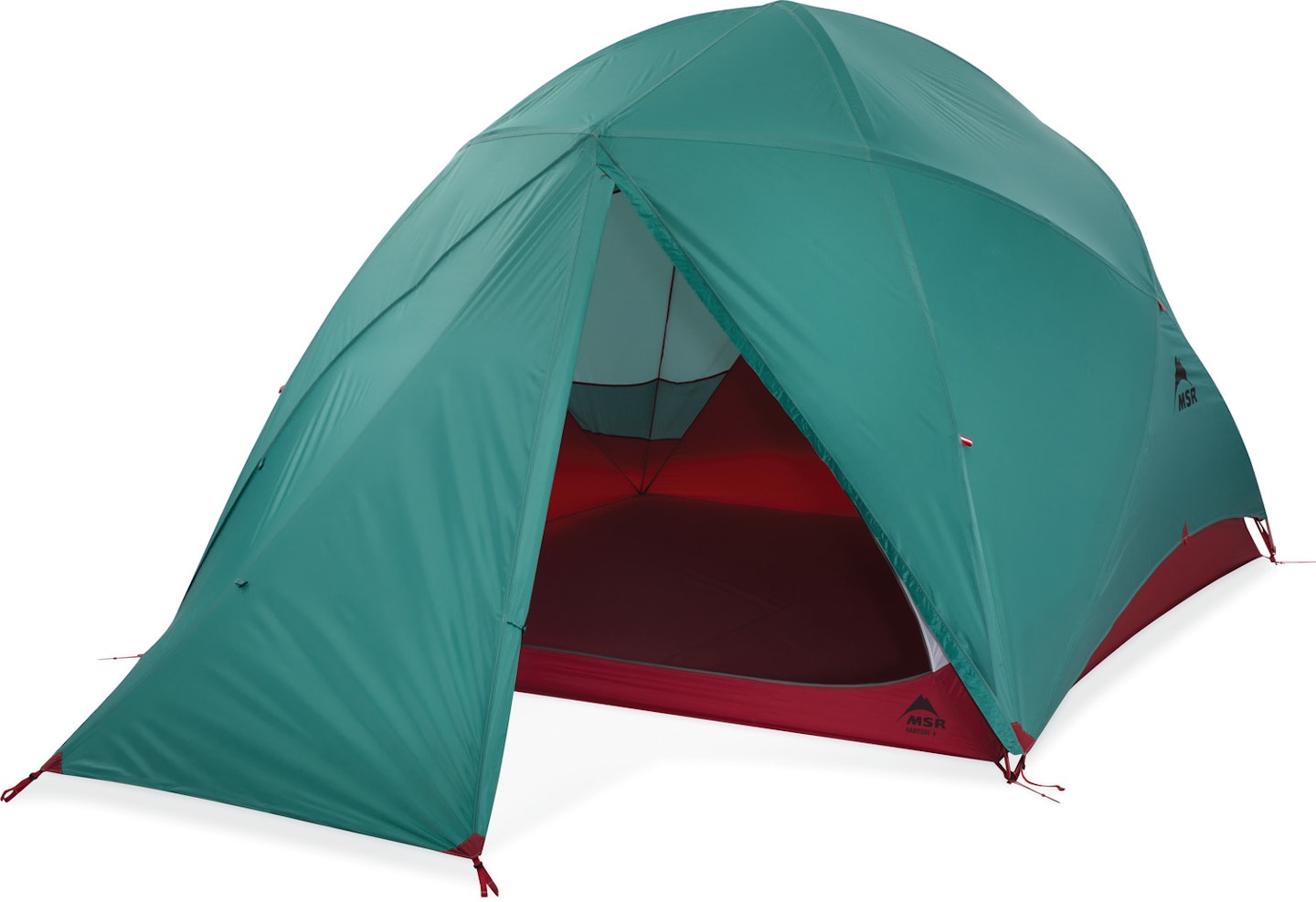
Best compact 6-man tent

www.outdoorgear.co.uk
At the opposite end of the scale from the big beasts, we have this very cosy 6-person tent for quick weekend getaways. It's extremely light and features a main bedroom for six at a pinch and compact front porch. MSR produce some cracking technical outdoor gear. The Habitude 6 is a highly stable shape and reasonable rain resistance. A smaller Habitude 4 is also available.
Pros
- Extraordinarily light for a 6-man tent
- Durable fabrics
Cons
- Comfortable for shorter trips for use as a six-person tent
| Style: | Semi geodesic |
| Waterproofing: | 1500mm HH fly, 10,000mm HH floor |
| Poles: | Aluminium |
| Outer dimensions: | 427cm (L), 254cm (W), 195cm (H) |
| Packed size: | 58 x 25cm |
| Weight: | 6.35kg |
Tent buying guide and FAQs
Waterproof ratings explained
Like fill power with down insulation, waterproof ratings are very simple but widely misunderstood – or not known at all. All the tents you see here use hydrostatic head as a means of showing how waterproof the fabric is. Hydrostatic head is the industry standard for measuring waterproof fabrics; the waterproof fabrics used for tents, or waterproof jackets, and so on.
The figure given (for example, 3000mm), indicates how high a column of water sitting on the fabric would need to be before water begins seeping through. It’s perhaps a slightly odd thing, but it’s an effective means of measurement. It’s all to do with pressure. Obviously, testing labs don’t actually use such volumes of water, they use machines that apply downward pressure. Thus, a tent with a hydrostatic head rating of 3000mm can withstand a three-metre column of water before it leaks through. Sounds like a lot, but see below for our guide to waterproof ratings:
1500mm: Waterproof. Will keep out rain.
4000mm: Will withstand heavy rain.
10,000mm+: Is what you should expect in hiking and ski jackets. They have to deal with rain and snow but also the extra pressure applied by backpack straps and so on.
For tents for use in the UK, a minimum of 2000mm is what you want.
Tent shapes explained
Tunnel tents are very popular with weekend and summer campers because they are easy to pitch and provide a lot of space inside (vertical and horizontal). You will notice all of our picks are tunnel-style tents and you can distinguish which these are by their half-cylinder shape. Whether using traditional poles or an inflatable design, tunnel tents are easy to split into multiple rooms and are very popular with families for this reason.
Features of tunnel tents: easy pitching; spacious; heavy when packed down; OK in moderate wind – the bigger the tent, the less stable it is.
Dome tents are generally being ditched in favour of tunnel tents in family camping grounds because they can’t compete for space. However, they are still very popular with hikers and trekkers because small dome tents are quite stable and lightweight. Dome tents with geodesic designs are very good at dealing with extreme weather.
Features of dome tents: cheap; fairly light; have single zones only; OK in moderate wind – the bigger the tent, the less stable it is.
Geodesic tents are kind of like upgraded dome tents. They have extra criss-crossing support poles which makes them much more adept at dealing with high winds. Because they are designed to cope with harsher weather, geodesic tents sacrifice space and are a little more complex to pitch than other styles. They are wonderful for those camping in more extreme environments but less suitable for casual campers and families.
Features of geodesic tents: capable in harsh weather; lightweight; best suited for hiking; often a pricier option.
Backpacking tents are some of the lightest tents you will find. Often they only require a single-pole plus guy lines to pitch. They vary considerably in terms of ability. Some are meant for summer use and mild conditions; some have more durable fabrics, making them suitable for three-season use.
Features of backpacking tents: very light; varied weather resistance; ideal for fast hikers and cycling trips.
Tipi/pyramid tents are defined by their tall central pole. They come in a large range of sizes and are used lightweight hiking tents, but more recently, have found favour with those seeking the glamping experience. They are fairly easy to put up and even stand up well against the elements, but inside space cannot compete with that of tunnel tents.
Tipi/pyramid tent features: easy to pitch; a vast range of sizes; deal well with bad weather; sloped walls rob interior space; some come without a floor.
Important extras for tents:
In order to improve your camping experience, there are some valuable extras that you might want to consider.
Frequent campers often run into trouble with supplied tent pegs pulling from the ground when the wind gets up or bending out of shape over time. These ribbed steel pegs will solve these issues and hold your tent down like a magnet. They are 10mm thick and 290mm long with a sharp pointed end for piercing hard ground or stones.
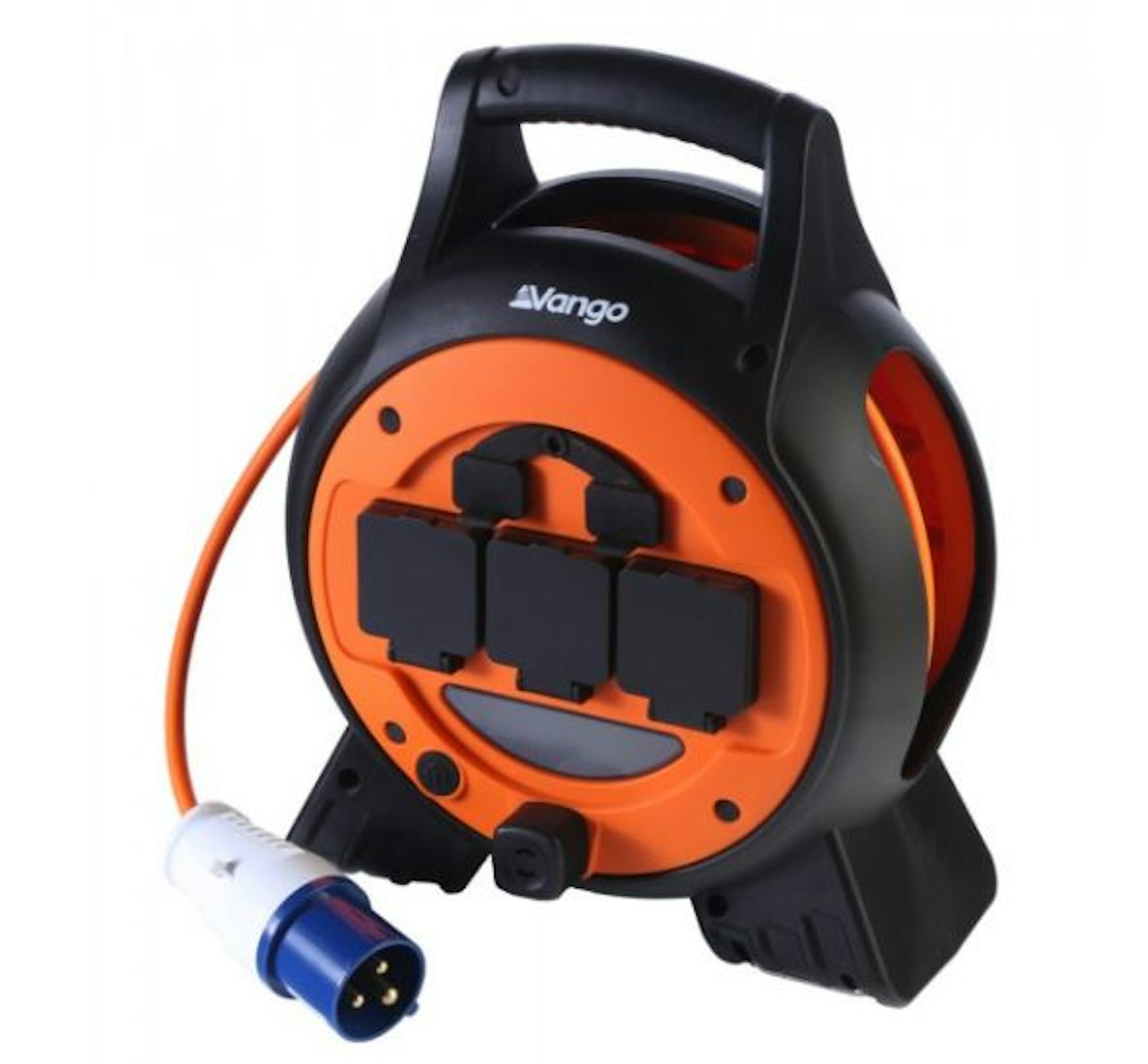
With its added modern touch of two USB ports, this plug board is tidy thanks to its roll-up 15-metre cable. It has three regular UK plugs and makes campsite charging and power supply very easy.
Groundsheets:
For added waterproofing on the tent floor, consider a groundsheet. They also help keep the floor of your tent cleaner, which is useful when it comes to the post-camp clean up. Some tents have their specific groundsheets that match the footprint perfectly. Alternatively, you can get a heavy-duty (and more versatile) tarpaulin.
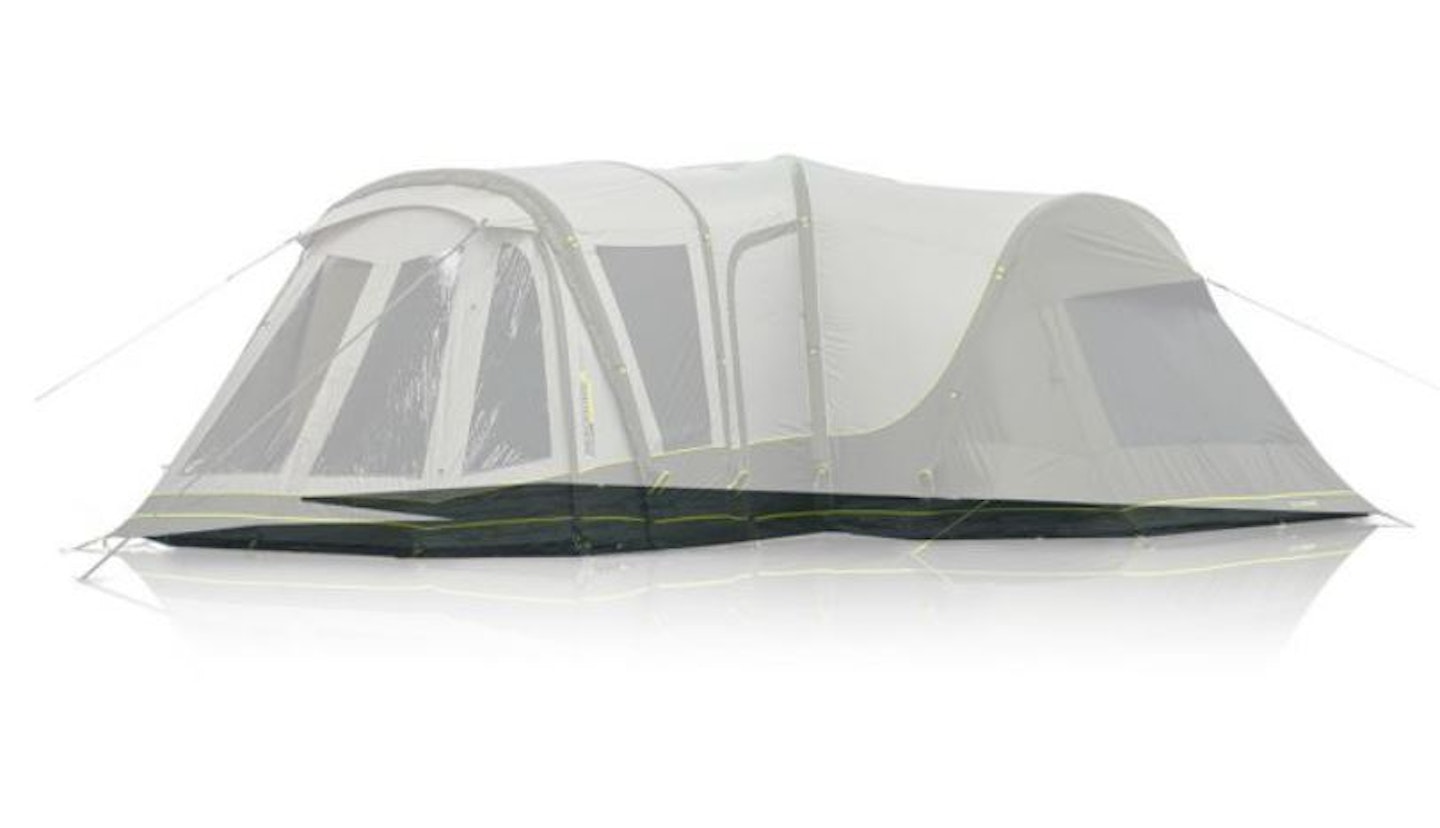
www.winfieldsoutdoors.co.uk
Made from 120g/m2 polyethylene. Weight is 2.80kg and comes in a storage bag.
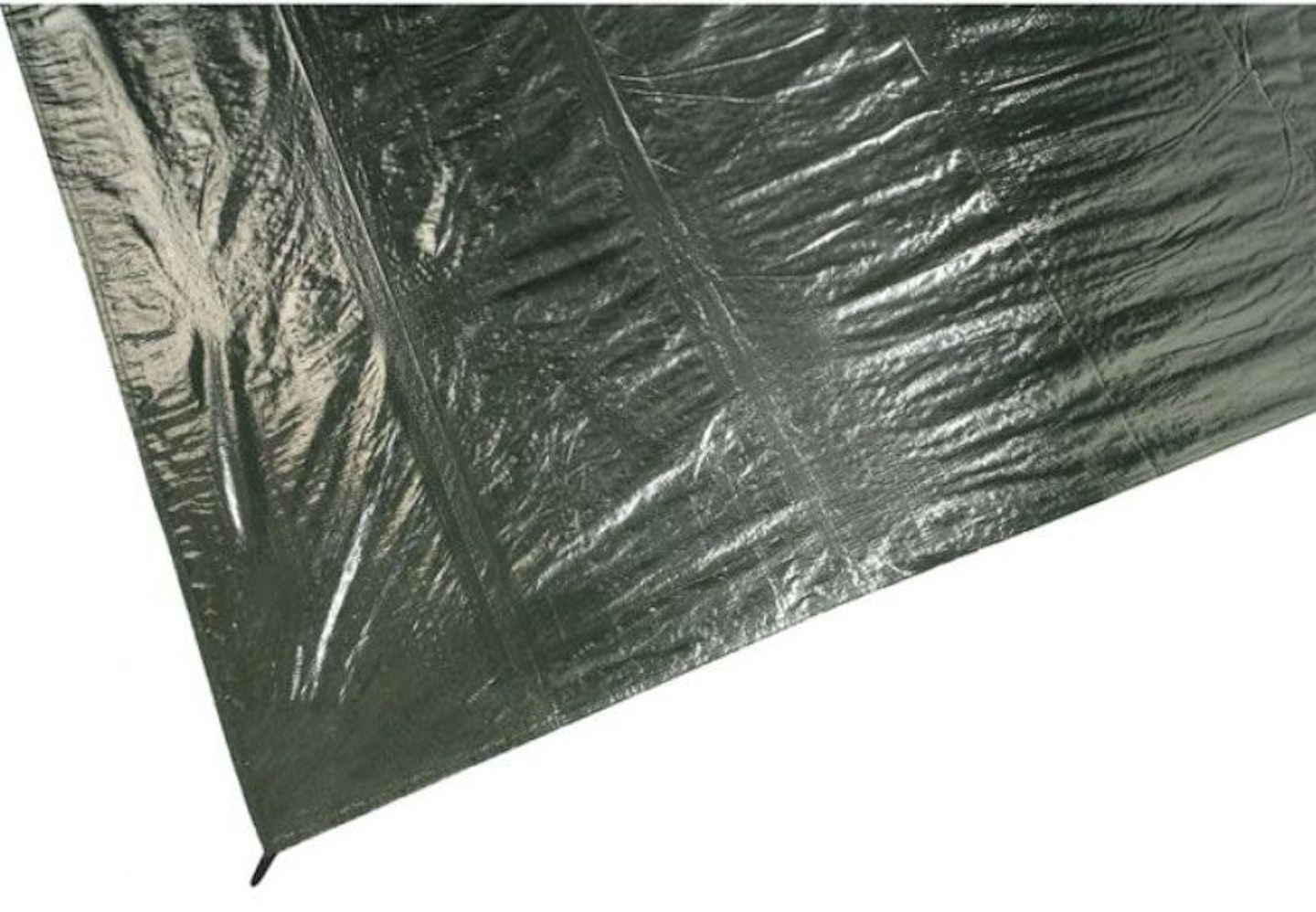
www.winfieldsoutdoors.co.uk
Made from polyethylene. Comes in a storage bag.
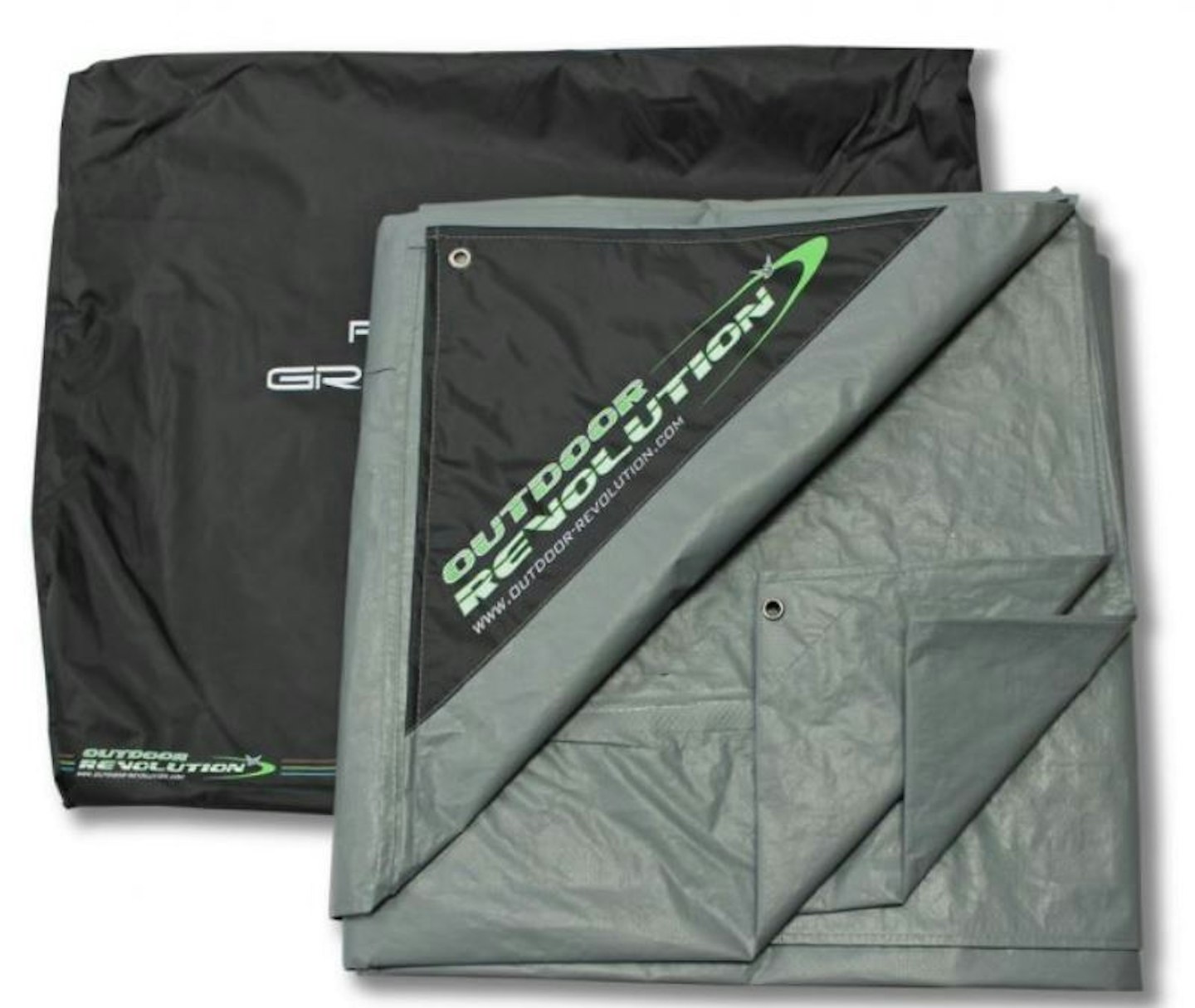
www.winfieldsoutdoors.co.uk
10,000mm HH waterproof rating. Comes with a storage bag.
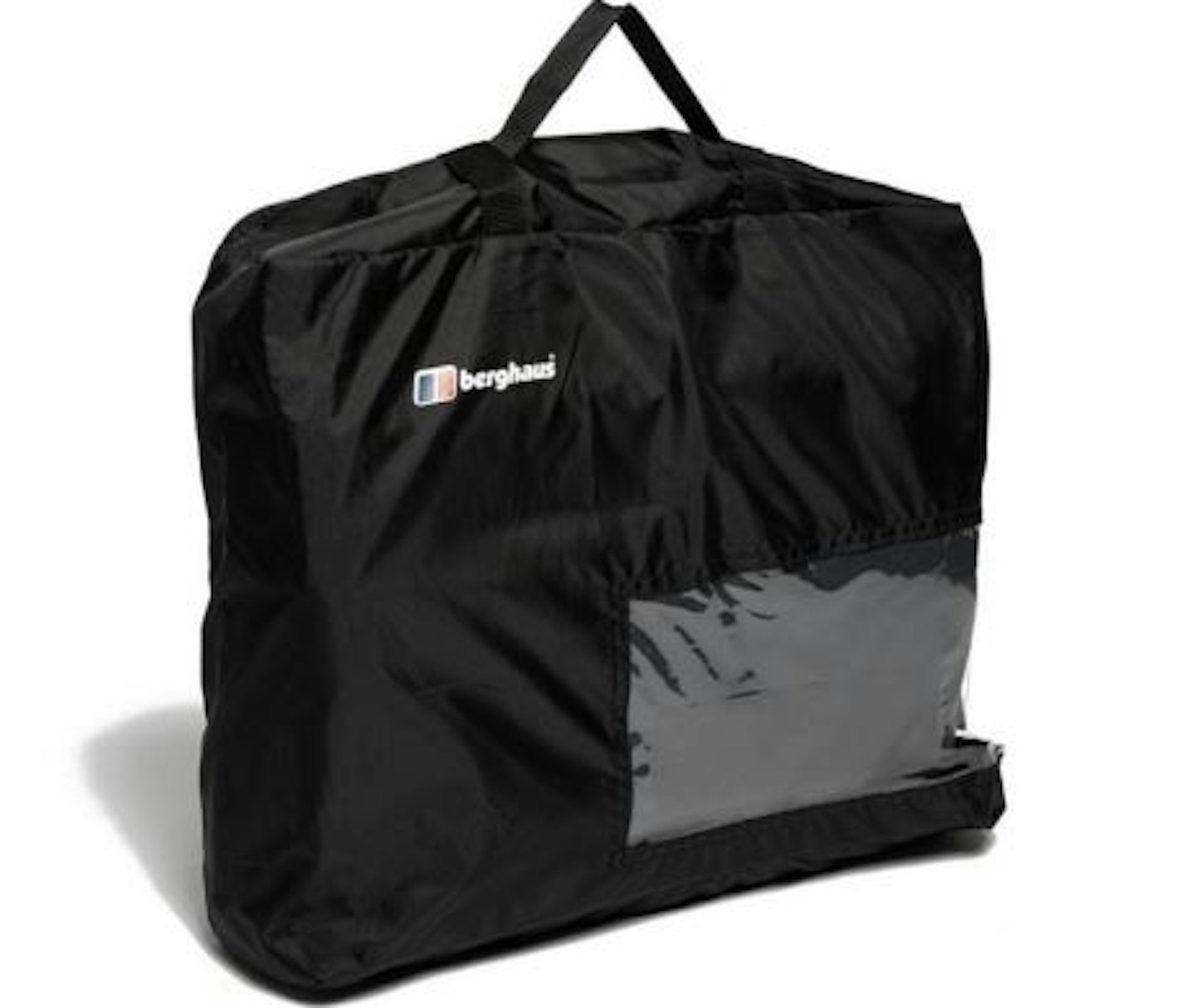
www.gooutdoors.co.uk
Made from 140g/m2 polyethylene.
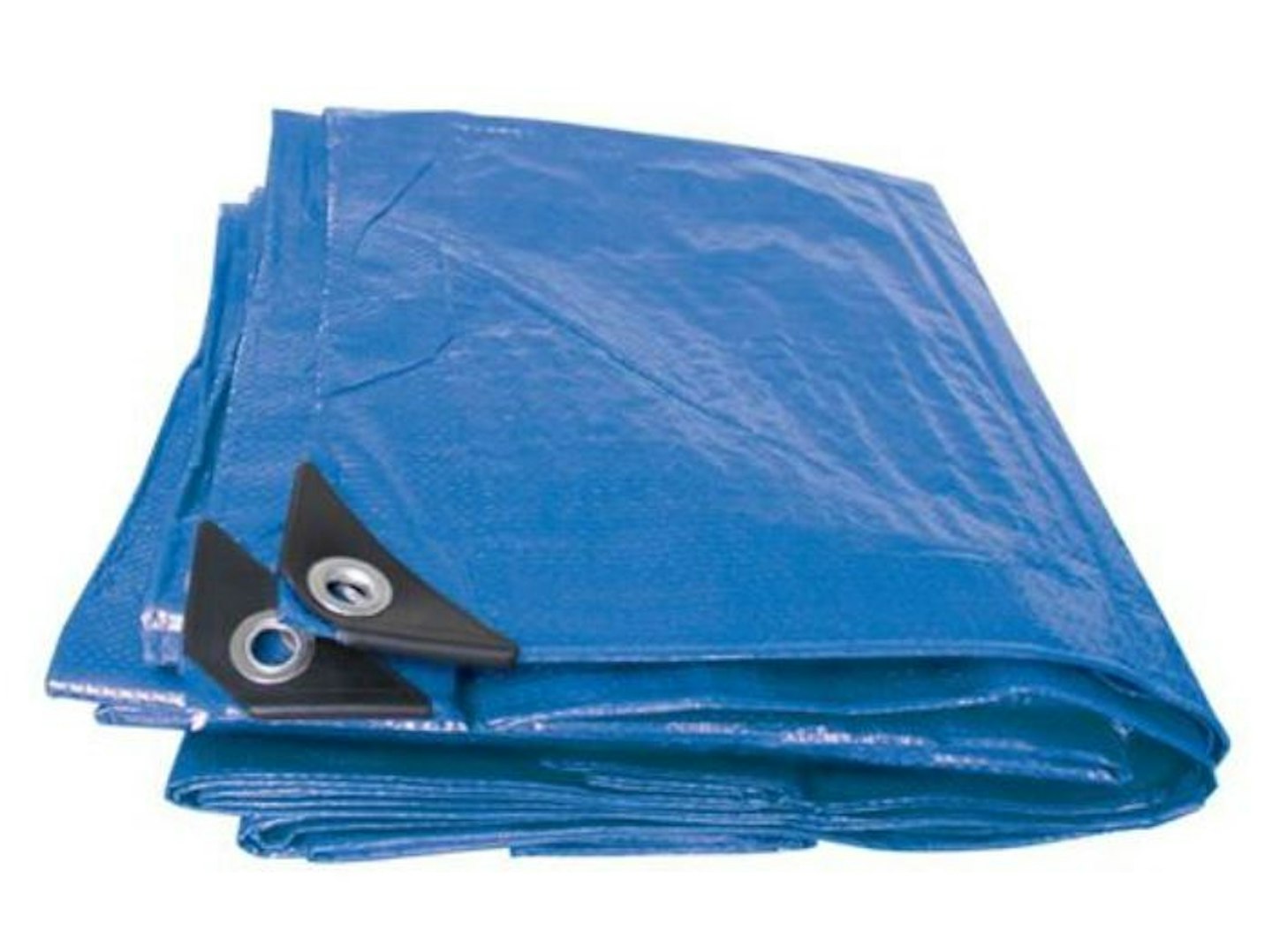
uktoolcentre.co.uk
6 x 4 metres. Made from 200g/m2, mildew-resistant polyethylene.
Which tent is right for me?
As you can see from the range of tents, it is entirely circumstantial as to what tent is right for you. Here are some important questions to consider:
Is this your first large tent? For those who are new to camping, it is probably worth investigating the more entry-level end. There are 6-man tents out there that offer excellent value, such as the Vango Odyssey or Aether 600XL.
Are you looking to upgrade? If you have a large tent already, and are now on the hunt for something with extra bells and whistles, consider the Zempire or Outdoor Revolution tents. The Berghaus is a great middle ground.
Is this a tent you will grow into? Buying a family tent in anticipation of an expanding family is wise. Think about what features and designs suit you best - what is and what is not important to you as a camper.
Where are you going with it? A campsite or somewhere more wild? Will your tent go up right next to the car or will you have to carry it a distance? Weight and packed size are important here. You may go to or plan to go to beautiful but frequently wet areas. All of our picks have great waterproofing, but those with higher ratings will give you better protection and at the very least, extra peace of mind.
How do you camp? Bare essentials or glamping? Size, features, and layout are all important factors in determining which tent is right for your camping style. Consider your camping equipment and which tent best matches your gear.

